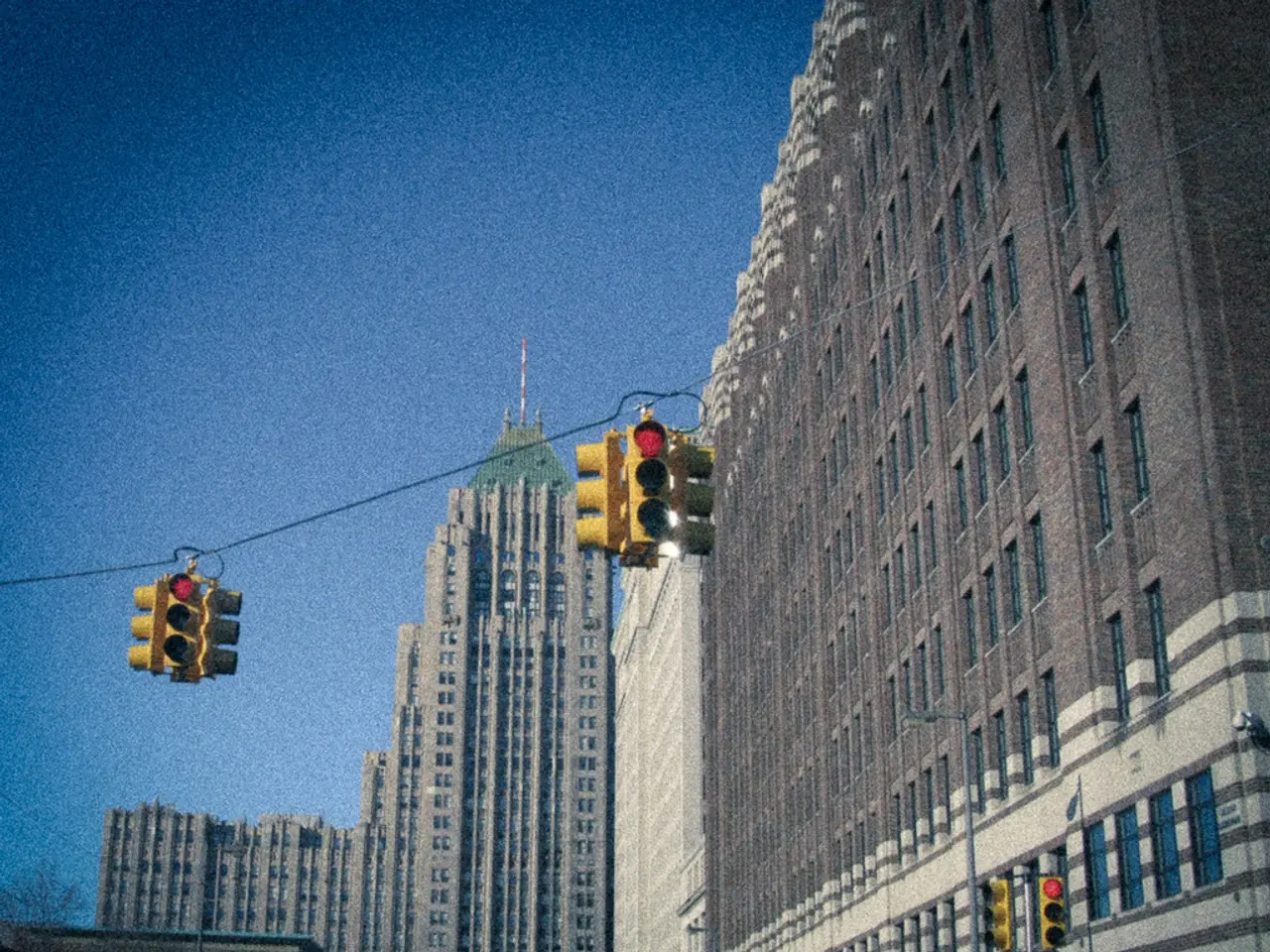Tourism industry workers in L.A. now guaranteed a minimum wage of $30, but subsequent ballot conflicts arose.
In the heart of California, Los Angeles is witnessing a significant political battle as labor unions and business groups square off over a series of ballot measures with far-reaching implications for the city's economy and workforce.
For Workers and Labor Unions
Labor unions, led by UNITE HERE Local 11, are advocating for a citywide minimum wage increase. The proposed hike would initially set the minimum wage at $25, rising to $30 by 2028, a move aimed at improving living standards for thousands of tourism-related workers [1][4]. The union's efforts have garnered public support, with major airlines and hotel chains backing the initiative [1][3].
UNITE HERE Local 11 has proposed multiple ballot measures, not just focusing on wage increases, but also addressing voter approval for large projects and corporate pay disparity taxation [3][4][5]. The union aims to leverage political power through direct democracy.
For Business Groups and the Local Economy
Business organizations, such as the Hotel Association of Los Angeles, BizFed, and the Asian American Hotel Owners Association (AAHOA), oppose the wage hike. They warn of potential job losses, business closures, and higher costs for consumers [2][4]. Small business hotel owners, in particular, face rising operational costs and express concerns about their sustainability and the possibility of passing costs onto travelers [2].
In response, business groups have launched costly campaigns to overturn the ordinance via a referendum and have filed petitions to repeal Los Angeles’s $800 million business tax, a move denounced by city officials [3][4][5]. The referendum and repeal efforts represent a direct engagement of business groups in the political arena to counteract labor-led initiatives [3].
Wider Political and Social Implications
This conflict marks an unprecedented political "arms race" in Los Angeles, pitting powerful labor unions against business interests [3][5]. City leadership has expressed concerns about escalating tensions and their potential to disrupt the city's economic stability and critical public services funded by business taxes [5].
If approved, the ballot measures could reshape labor standards citywide, redefine the business tax landscape, and affect development projects, including those related to the 2028 Olympics [1][4].
Notable Quotes
- Maria Hernandez, a spokesperson for Unite Here, pushed back on claims that the union is being reckless, stating, "The fight to preserve the $30 per hour tourism minimum wage has received a groundswell of public support" [6].
- Councilmember Hugo Soto-Martínez disagreed with the assertion that the ballot measure battle is out of control, expressing interest in the union's push for higher city taxes on companies with exorbitant CEO pay [7].
- Thornberg, an economist, voiced concern about Unite Here's proposals, stating they would hurt the city's economic development [8].
- Soto-Martínez had a dim view of the push to repeal the tourism minimum wage, calling it "despicable" [9].
- Thornberg predicted that the proposed citywide minimum wage hike would drive businesses and their customers to other parts of Los Angeles County [10].
- Thornberg warned that the plan to force projects to go before voters would hurt the city's ability to carry out basic economic development [11].
This ongoing ballot battle reflects deeper political struggles over economic policy and governance in Los Angeles amid its preparation for major global events [1][2][3][4][5].
- The government of Los Angeles is seeing a heated political confrontation between labor unions and business groups, with both sides aggressively promoting various ballot measures that could affect the city's economy, workforce, and living standards.
- UNITE HERE Local 11, a labor union, is pushing for a citywide minimum wage increase to $30 by 2028, which could benefit thousands of tourism-related workers in Los Angeles.
- Business groups like the Hotel Association of Los Angeles, BizFed, and AAHOA are against the wage hike, arguing it could lead to job losses, higher costs for consumers, and potential business closures.
- The political battle in Los Angeles's landscape is not limited to wage increases; UNITE HERE Local 11 has also proposed ballot measures dealing with voter approval for large projects and corporate pay disparity taxation.
- City leadership, including Councilmember Hugo Soto-Martínez, has expressed concerns about the potential disruption to the city's economic stability and public services due to escalating tensions between labor unions and business groups.
- The ongoing ballot measures in Los Angeles are part of larger political struggles over economic policy and governance in the city, particularly as it gears up for global events such as the 2028 Olympics.








